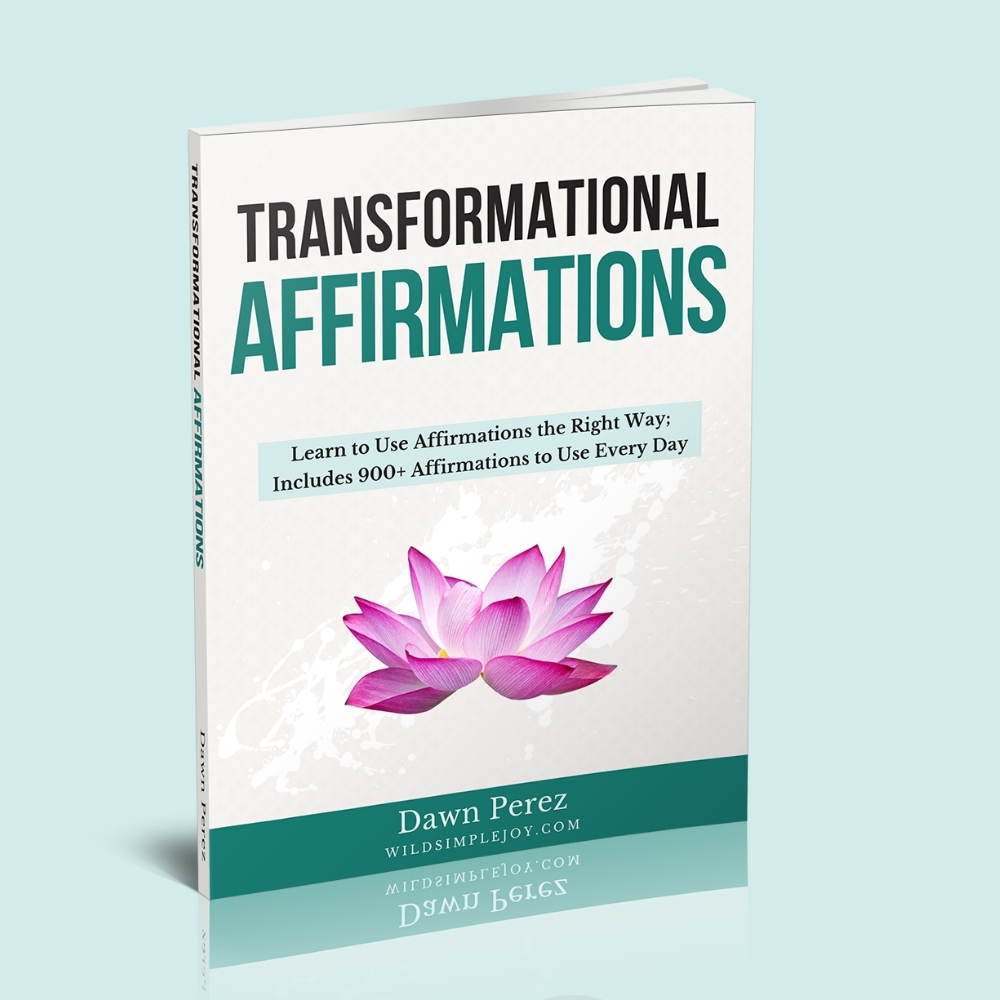“I am the master of my fate.”
It was poet William Ernest Henley who stated this in his poem Invictus, written in 1875. This sentence is an affirmation. But what is an affirmation, and how do affirmations work?
An affirmation is an affirmative statement or any act that affirms something, for example, nodding yes when someone asks you a question. When you make affirmations, they are statements about yourself and your life which you make with conviction and belief. They can be anything from “I am strong” to “As I breathe out, I release my pain and anger. As I breathe in, I invite in love.”
It is natural for us to use these without prior knowledge about what they are and use them as motivation or to inspire ourselves into action. On the morning of a big presentation at work, you might look into the mirror and tell yourself, “I got this!” An affirmation!
But when you want to use them in the most powerful way, we must look at what affirmations are, where they came from, and how affirmations work for maximum power in our lives. So keep reading to discover more about this powerful tool for positivity and manifesting.

Affirmations 101
The word “affirm” comes from Latin, meaning “strengthen or make steady.” In Middle English (1300’s), it was “affirmen,” meaning “to state positively.”
When we’re talking about the recent use of the word, affirm means confirming or agreeing with something. It is a positive word, and it usually means the truth.
Affirmation Gurus
When we think of the leaders of the positivity movement and affirmations, we think of the foremothers and forefathers of the affirmation movement, like Louise Hay and Wallace Wattles.
Louise Hay is well known for her book You Can Heal Your Life, which talks about the Law of Attraction directly, which was not too familiar back in the 80’s when it was published. Louise believed that affirmations are statements you make to yourself because they “affirm” your worth, beauty, and capabilities. They are not just “positive thinking” but a way of letting go of our limiting beliefs.
Wallace Wattles also spoke of the power of positive thinking in his book The Science of Getting Rich (first published in 1910), which was the inspiration for The Secret. He uses positive thinking to connect to the universe and fulfill your deepest desires and find success.
Affirmations can also be called “positive thinking” or “building your personal power,” but it is much more than just repeating something over and over to get results.
Transformational Affirmations Ebook
Do you like what you’re reading?
This post and ALL 30 affirmation posts on Wild Simple Joy have been combined into a PDF ebook. If you feel that you will want to come back to this information again and have easy access to 900+ affirmations, then this might be for you.
Beautifully formatted with no ads. $12
Or just keep reading below!
The Law of Attraction
When we think of using affirmations, we’re often thinking of what’s called the Law of Attraction.
It is a spiritual concept introduced in 1877, describing a natural law that is a part of the belief that our words and thoughts have the power to change our reality. Initially established in the occult world, it has been recognized as a universal law that applies to everyone.
If you want your life to manifest your desires, then know this: what you’re saying right now sets it into motion. And why not say exactly what you want, so it manifests much faster? Your words have power, including those you speak out loud and those whispered in your mind.
The Secret
We’ve all heard of The Law Of Attraction by now through popular media, but for a quick refresher, The Secret is a 2006 bestselling book and documentary by Rhonda Byrne.
It’s based on the concept that “thoughts become things,” meaning what we think about most will eventually come to us as our life experience – so positive thinking leads to success while negative thoughts bring failure.
Think of it this way: If you want to know how to make a cake, you must first have the thought and desire for it. The more often you think about making that cake (positively), the faster your reality will align with those thoughts and bring them to fruition.
The Law of Attraction is about creating your reality. If you want to change anything in your life (including the quality of relationships), make new thoughts more conducive to having what you want – including feeling good.
Now, this book poses some questionable beliefs (for example, how you get cancer because of negative thoughts). Still, overall the general idea gives us a great place to start on our journey with affirmations.
How I Unknowingly Manifested My True Desires with the Law of Attraction
I want to tell you a story of how I manifested the most significant opportunity I had ever had. And it came in the package of the pure devastation of being forced out of a job.
As a new teacher, I was thrilled to have landed a job in an affluent suburb of Toledo, Ohio, where I had done my student teaching. It was what I thought was my dream job. I was on track to be head choir director there in several years, the program was flourishing, and there was a lot of money in the district.
They wanted a director who would fit in, do what they told her, and have choir be like a “recess” for the students who were all in multiple AP classes and under a lot of academic pressure.
However, I believe that art is not recess. It is a crucial and essential element of our human experience, and I taught with the seriousness that music deserved. My students benefited from a consistent work ethic and me gently pushing them beyond their comfort zones.
I thought I wanted the job I had, but in actuality, I was obvious in telling the universe what my soul truly wanted: I wanted respect. I wanted my art to be taken seriously.
The district, however, did not think music was a serious pursuit. I tried for four years to force and push my way into their minds to understand and respect me; they tried a different tactic: “leave willingly, or we won’t renew your teaching contract.”
Although I didn’t see it at the time, the universe provided me with the opportunity to have exactly what I wanted: to perfect my craft in an environment with people who took me seriously and respected me.
After four years of that teaching job, I ended up at grad school the very next year and had precisely the respect and seriousness that I wanted.
It’s also worth noting that I did not do this on purpose, and therefore, didn’t have any expectations that I would be given what I wanted because I didn’t even know what I wanted until I had it!
I have also actively manifested my relationship with my husband.
READ MORE:
Affirmations to Find Love and Establish a Healthy Relationship
Metacognition
I’m someone who believes in the power of energy—that the energy and intentions that we send out into the universe reflect what we receive in life. The great news is that if you’re not a new-age hippie like me, science is still on our side!
Watch this fascinating TedX talk by Dr. Joe Dispenza. He explains that the human brain is capable of metacognition, which means that we humans are aware of our awareness. We have the capability of being aware of our thoughts and changing them.
When we first start becoming aware of our thoughts—our psychology, our inner workings—it may take us a while. We realize what we were doing or thinking after the fact. But as we get better at noticing what’s going on in our heads and bodies, we can see faster and faster. Before too long, we’re able to predict ahead of time what our instinctual reaction will be and stop ourselves, changing to something else.
After we reach this point, we can begin to establish new habits: new instincts.
Now let’s examine metacognition and the Law of Attraction. You will learn how to use affirmations to maximize both of these things.
Affirmations for Attracting (Manifesting) What You Want In Life

So how do affirmations work? You can think of them as communicating with the universe while simultaneously changing our psychology. They’re like lightning bolts that attract what you desire and manifest it into your life because you spoke out loud to set its energy into motion.
Affirmations work best when you’re:
1) doing the work on yourself and your situation
2) releasing your expectations of getting what you want
Yes, this sounds counter-intuitive, but follow with me for a moment.
What the affirmations are doing is helping you face something difficult with greater integrity while getting clear on what you actually want out of life. You can’t be clear on what you want until you’ve done the work on yourself to better yourself and change your habits. And you can’t meet something difficult with integrity unless you have prepared yourself to meet it.
If someone is struggling with moderate anxiety and doesn’t know why, they might turn to affirmations to help with that anxiety. Doing the work on themselves means recognizing their stress and what triggers it. Is it an unsafe relationship? Is it unreasonable expectations by your boss? Is it a feeling of being unsafe in your body or where you live? Once you understand where the anxiety is coming from, you can choose affirmations to complement those areas.
“I am courageous. I gently tell others when they have crossed a boundary. My body is my safe space.”
You go into affirmations with the understanding that you may come upon these feelings of anxiety, of being unsafe again in the future. But your affirmations are designed to give you the power and tools to face that anxiety with courage and the ability to bring yourself back down.
You are clear on what you want and what you’re working for, and the Law of Attraction may have the universe send you exactly what you need to get out of those unsafe situations. A new job opportunity in a different city, a new “friend” who turns out to be your soulmate, or a friend who wants you to be their new roommate.
Are affirmations toxic positivity?

In general, affirmations are not toxic positivity. This is a common misconception because sometimes, when you ask people what they think of affirmations, their first thought is hard-core self-help consumers who eat, breathe, and sleep mantras and positivity.
But affirmations are an opportunity for us to set goals or aspirations for ourselves with positivity and certainty. They give us the space to imagine what it would be like to have our dream job, lose weight, or succeed in all of our endeavors.
Affirmations are a tool for setting an intention for ourselves and sticking with it if we need some extra help in getting there. They help us motivate ourselves to do the work; the affirmations don’t do the work for you.
Affirmations only become toxic when we are actively ignoring something else in our lives that requires attention or failing to do the work. For example, if your husband has told you that he wants a divorce, your life requires you to do the work on your relationship through conversations or counseling.
If you repeat the affirmations, “My conversations are easy. My relationship is perfect!” and you refuse to have those tough conversations, then your affirmations are not going to work for you. I’m sure this is pretty basic and easy to understand, but it’s typical for people to desire a simple solution, so they don’t have to do the hard work.
In this way, the Law of Attraction will not work, because when you’re saying “My relationship is perfect!” and not doing the work, what you’re actually telling the universe, is “I want this to be easy” and “I want to ignore the wishes of my husband.” The universe may make it very easy for you when your spouse serves you with divorce papers. Problem solved! Is that really what you wanted?
If you find yourself doing this, don’t feel bad—it’s a natural human response to want things to be easy. But affirmations can also help you confront the more challenging parts of life, which we’ll detail more below.
So, what kinds of challenges can affirmations help with?
Affirmations are not a cure-all! Some situations are more well suited to affirmations than others.
For example, if you are getting close to graduation from college and feel busy and stressed, affirmations can help you stay focused for this short period while you give your final push toward your degree. Affirmations are great for preparing for birth: another transient event in a pregnant person’s life.
Affirmations are also good at helping us change our overall state of mind from being damaging to having healthy positivity in our lives.
Some situations where affirmations don’t work so well, at least not on their own, include clinical depression, other psychological disorders, or a severe state of primal stress activation. When you’re living in a constant state of fear or dealing with an imbalance or misalignment of chemicals in your brain, affirmations would be like putting a bandaid on a broken bone.
In these more challenging situations, affirmations may be helpful in conjunction with other forms of therapy and/or medication, but not alone.
To recap:
Affirmations work best when you are fully committed to knowing exactly what you want and doing the work regardless of the outcome.
Choosing Your Affirmations
When you’re looking for affirmations (or writing your own), you want to keep a few things in mind.
Affirmations work best when they meet the three following criteria:
1.) They are PRESENT tense.

It is essential to focus on how you will feel once you have achieved your goal—not how you feel right now. Let’s say you want to use affirmations to help you lose weight.
“I am working toward my goal of 130 pounds” is in future tense.
“Every day gets me closer to my goal of 130 pounds” is better, but still not best.
Some present tense affirmations might be:
I feel strong and powerful.
I am slim and sassy at 130 pounds.
These will help you get into the mindset of the future that you are creating. You’ll start to feel more robust and more powerful and slim and sassy before you know it.
2.) They are POWERFUL:
“I feel good about myself” is an affirmation that just doesn’t cut it on the power scale. Try instead:
“I am a woman who exudes confidence and feels radiant in her own skin.”
“I am a fitness badass.”
You’ll notice that in the 2nd example, I used more specific adjectives and strong verbs. “Radiant” is better than “great” or “good.” The 3rd example uses strong language. Cussing can be therapeutic, so don’t think you need only to use language that Steve Rodgers would use.
3.) They are POSITIVE:

“I have lost 30 pounds” is an ineffective affirmation because it focuses on the word “lost.”
“I feel energetic and light at 130 pounds!” is much better. The focus is now on “energetic” and “light.” Again, this example is specific, it is in present tense and focuses on the positive!
Here are some other examples not about weight loss:
“I no longer accept toxic people in my life.” The words “No” and “Toxic” stand out. Flip it so that it has no negatives:
“I only accept warm and generous people into my life.”
Present, Powerful, Positive:
You can find great affirmations online—make sure they fit these criteria. (Not all do.) It’s even better to make your own because they will be more specific to your life and what you’re trying to bring into your life with metacognition and the Law of Attraction.
3 Ways to Practice Affirmations Every Day
Like everything worthwhile in life, you need to work at your affirmations to make them work. I’m not saying you should spend hours a day, but they help the best when you use affirmations consistently, every day.
Here are three easy ways to actively practice your affirmations every day to engrain them in your brain.
1.) Write them out.
Writing affirmations is a powerful practice. The recommendation to students today is that they take class notes by hand, and this exercise is no different. Learning and retention are enhanced when writing things out by hand.
Keep track of your daily affirmations practice in a journal or a planner. Don’t beat yourself up if you miss a day—that defeats the purpose. Remember, affirmations should help you get clear on what you want, notice your thoughts and feelings, and use energy and vibration to attract what you want.
2.) Say them aloud.
Pick one time of day, preferably in the morning, when your brain is fresh, and say each affirmation aloud, with meaning and determination. One way to make sure you’re doing your affirmations every day is to add affirmations to a part of your routine that already exists.
Say them in the shower, say them while you’re drying your hair. Say them in the car on the drive to work.
If you don’t think you can memorize them to recite them every day, print them out and tape them to your mirror. If you’re the kind of person who wants to focus on one affirmation at a time, then repeat that affirmation as many times a day as it pops into your mind during the day as well.
The goal is to train your brain to think about what you want in your life and how you want to feel all the time: confident, calm, or relaxed, or assertive.
3.) Meditate or Practice Self-Hypnosis

When I was pregnant with my first baby, I went through a self-hypnosis program called Blissborn. Like the Hypno-birthing program, Blissborn helped me get into the mind-frame of what labor would be like as a first-time mom.
I set intentions and affirmations for what I wanted my son’s birth to look like and would put myself into hypnosis 4-5 times a week, reciting those affirmations in my mind. Even though I did not get the birth experience I wanted (very few moms do), the affirmations that I set helped my body to relax during labor. I had a short pushing time for first moms and a quick recovery time.
Self-hypnosis can work wonders because not only are you focused on your affirmations, but you are clearing away everything else. During self-hypnosis, you have wiped the slate clean, and you are putting intention on only things you want to focus on.
Conclusion
Affirmations can be a powerful way to change your mind, alter your habits, and get clear on what you want and need in your life. By using affirmations, you’re sending these vibes out into the universe and using the Law of Attraction to manifest precisely what you want.
But this isn’t a straightforward process, and you may run into some snags on the way. So make sure you read the following article in this series: Affirmations Troubleshooting: What to Do When Your Affirmations Aren’t Working.
How do you use affirmations? Have they helped you in the past?
Make sure you drop me a comment below.
Here are our top affirmation posts on Wild Simple Joy:
Affirmations for Fitness and Health
Affirmations for Self-Love and Self-Worth
Affirmations for Patience
Affirmation for Spiritual Enlightenment
And navigate here to check out all the affirmations we have here.







Christina
Thursday 14th of May 2020
Loved this article! I really appreciate the step by step tips. I am trying to get better about affirmations, but right now I am not saying them to myself enough or letting myself feel the emotions about them. I’m saving this article to refer to as I improve in this area!
Jen
Thursday 30th of January 2020
This was so great! I love positive affirmations. I'm a bit stressed, so I need to create some that fit this situation. Thanks so much.
Erin
Tuesday 28th of January 2020
Such a detailed post! I’m a therapist and recommend affirmations for everyone! Keeping it simple and stating in the AM in mirror is a great tip that I’ve seen work wonders!
Amber Hurley
Tuesday 28th of January 2020
Affirmations definitely bring on a more positive mindset!
Catherine Irwin
Tuesday 28th of January 2020
Thanks for sharing such an in depth look at affirmations they obviously are working well for you.